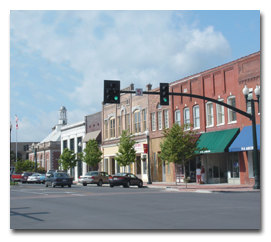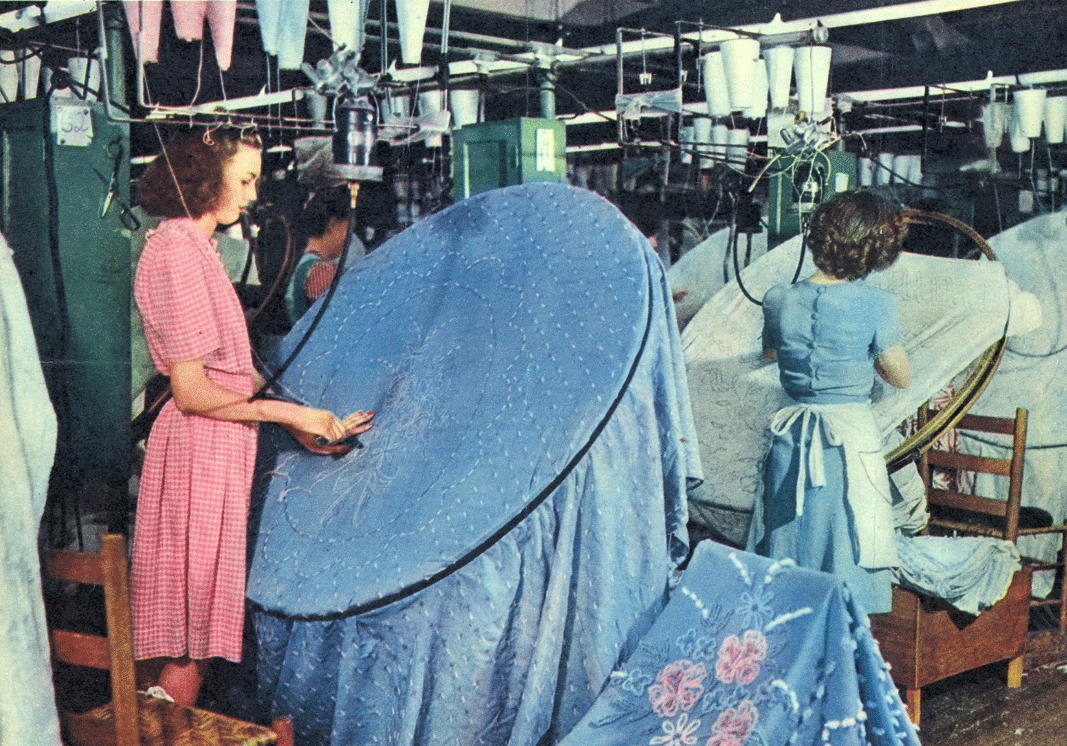Dalton, Georgia, is often recognized as the “Carpet Capital of the World,” a title it has earned due to its rich heritage and key role in the textile industry. The city is located in the northwestern part of Georgia and is known for its substantial contributions to the carpet manufacturing sector. With an extensive history spanning several decades, Dalton showcases a remarkable evolution from its humble beginnings to becoming a bustling hub for carpet production.

A glimpse of downtown Dalton, Georgia, a city synonymous with carpet manufacturing.
Source: Textile World
The transformation of Dalton’s economic landscape began in the post-World War II era, particularly in the 1950s, when carpet production surged. The area’s ideal geographical location, coupled with innovative manufacturing techniques, allowed local industries to thrive. Entrepreneurs recognized the economic potential of textiles and invested in dyeing, tufting, and weaving operations, establishing Dalton as a critical player in the carpet market.
Today, Dalton is home to more than 150 carpet manufacturers, which collectively account for approximately 70% of the total carpet produced in the United States. The industry not only employs thousands of residents but also influences the local economy significantly.

Carpets are intricately woven, showcasing both artistry and craftsmanship.
Source: Britannica
Dalton’s nickname as the “Carpet Capital” stems not only from its extensive production capabilities but also from its rich textile tradition, which includes a variety of carpet styles and techniques. The city’s manufacturers produce a wide range of carpets, including plush, textured, and patterned varieties—catering to both residential and commercial sectors.
Many of the local carpet companies engage in sustainable practices by utilizing recycled materials and developing environmentally friendly products. This evolution towards sustainability reflects a broader trend in the textile industry, where manufacturers are increasingly aware of their ecological footprint.
Additionally, Dalton hosts events and showcases like the “Carpet and Rug Institute” which serve to promote the industry and educate consumers about carpet care and maintenance. These initiatives help foster a sense of community and pride among carpet manufacturers and residents alike.

A carpet factory in Dalton, exemplifying the city’s industrial prowess.
Source: Atlas Obscura
The Cultural Impact of the Carpet Industry
Beyond its economic significance, the carpet industry has influenced the culture and identity of Dalton. The local community celebrates its textile heritage through various festivals and exhibitions that highlight the artistry involved in carpet weaving and design. These events attract tourists and carpet enthusiasts from across the country, further promoting the city’s reputation as a textile center.
The story of Dalton as the “Carpet Capital of the World” embodies the spirit of innovation, resilience, and community pride. The industry has fostered a unique cultural identity that reflects the artistic and practical aspects of carpet making, making this city a vital player on the global textile stage.
In conclusion, Dalton, Georgia, stands as a testament to the evolution of the carpet industry and its significant role in the economic and cultural framework of the region. With its impressive manufacturing capabilities and deep-rooted traditions, Dalton continues to shape the future of textile production while honoring its legacy.